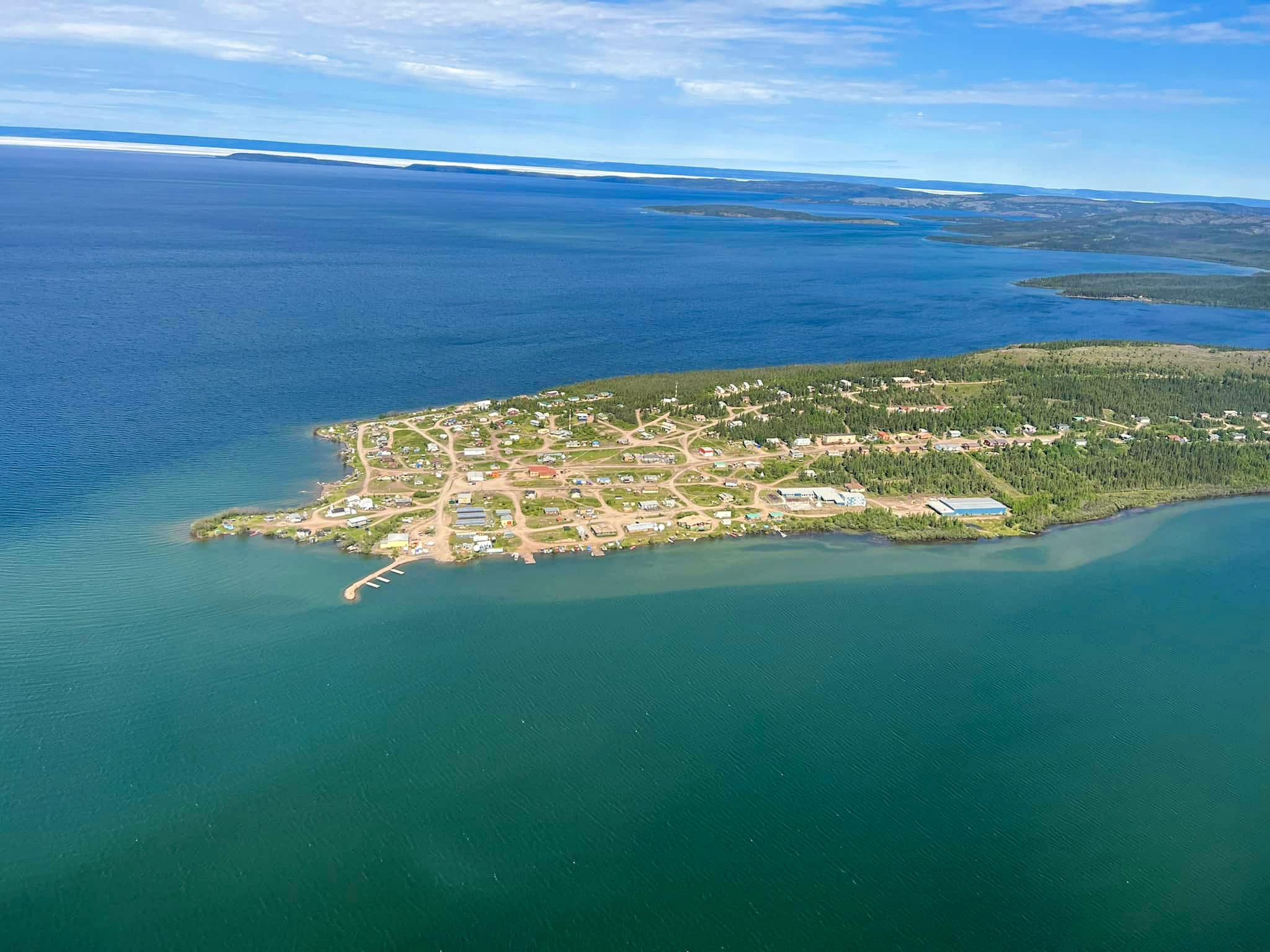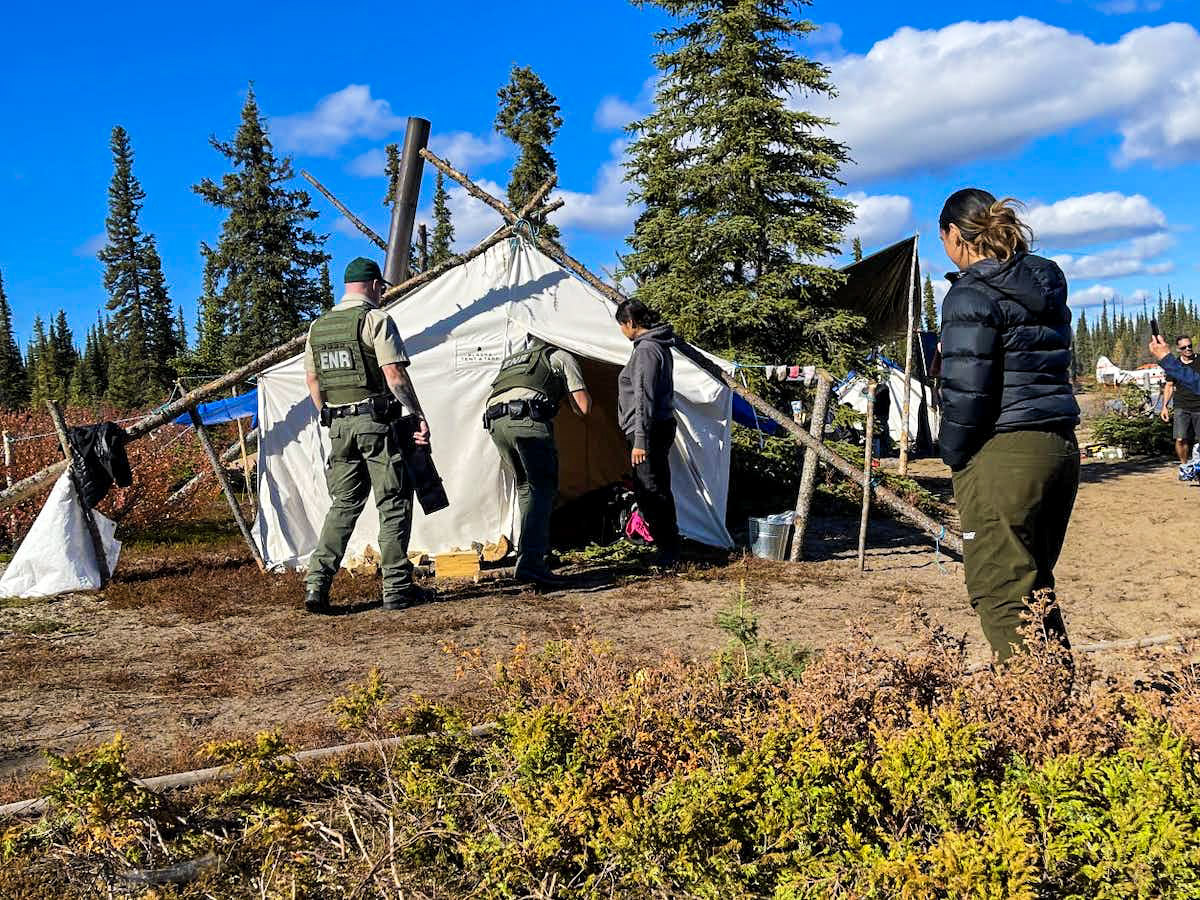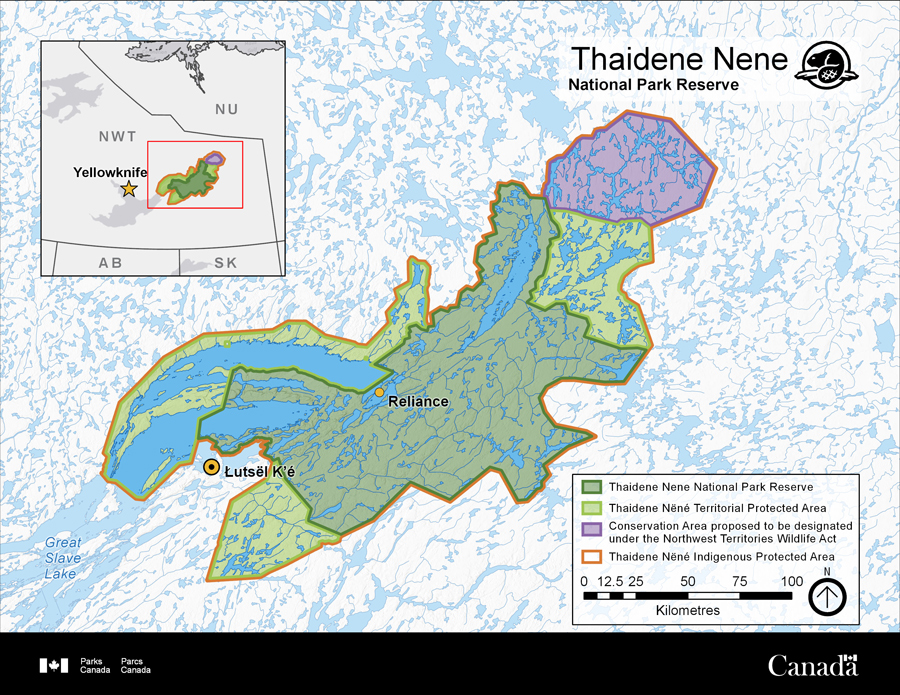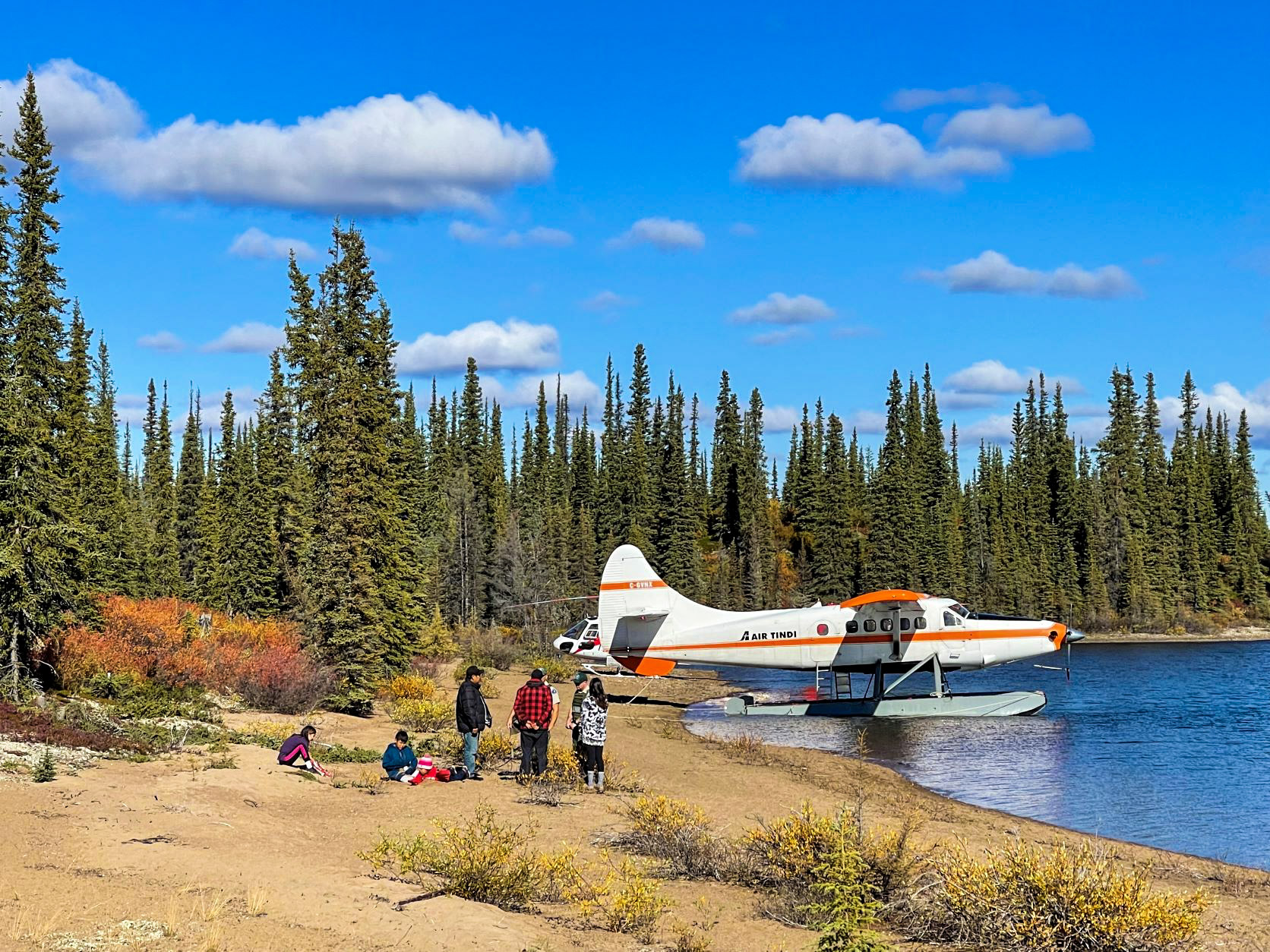Indianz.Com > News > The Conversation: An attack of Indigenous rights is an attack on nature conservation

An attack of Indigenous rights is an attack on nature conservation
Wednesday, November 2, 2022
The Conversation
On October 24, the Northwest Territories Supreme Court quashed a search warrant that allowed wildlife officers to raid a Łutsël K’é Dene First Nation culture camp in Thaidene Nëné National Park Reserve based on allegations of illegal hunting.
The raid, which took place last month, has been described by the Dene Nation as a “clear breach and direct violation of Aboriginal rights.” It also violated their right to be free from unreasonable searches by law enforcement officers under the Canadian Charter of Rights and Freedoms.
Łutsël K’é Dene First Nation has protected Thaidene Nëné (the land of our ancestors) under their own law since time immemorial. They invited the government to establish the Thaidene Nëné National Park Reserve in 2019 and protect it under the National Parks Act and the Protected Area Legislation of the Northwest Territories.
This is a prominent example of how the federal, territorial and First Nations governments have been working together to protect a culturally and ecologically significant landscape. However, the raid on the Łutsël K’é Dene culture camp last month undermines these relationships and emphasizes the importance of Indigenous rights and community leadership for biodiversity conservation. An attack of Indigenous rights is an attack on nature conservation.

Momentum towards Indigenous-led conservation
Thaidene Nëné was established as an Indigenous Protected and Conserved Area (IPCA) by the Łutsël K’é Dene First Nation in 2019 after decades of negotiations with Parks Canada and the government of Northwest Territories. It is also a National Park Reserve and a Territorial Protected Area.
In March 2018, the Indigenous Circle of Experts, who coined the term IPCA, tabled a report titled We Rise Together, which traces how protected areas historically resulted in the displacement of Indigenous Peoples.
The report advised the Canadian government on how to meet its international conservation commitments under the UN Convention of Biological Diversity by, in part, establishing these IPCAs in the spirit of the original treaties. It argued that all IPCAs should be Indigenous-led, but supported by others. It reflected the growing body of scientific evidence that shows that Indigenous Peoples have knowledge and governance systems which, when allowed to operate, result in higher levels of biodiversity than state-run parks and protected areas.

Broken trust
The raid on the Łutsël K’é culture camps on September 13 showed that there is still a long road ahead for conservation and reconciliation.
When Northwest Territories wildlife officers received a complaint about illegal hunting of the Bathurst Caribou Herd, they did not approach the Ni Hatni Dene land guardians, who are the stewards of Thaidene Nëné, for assistance and advice.
Instead, they obtained a warrant to conduct an extensive tent-by-tent search of a cultural camp of more than 80 people there. On Sept. 13, wildlife officers flew in to the culture camp at Timber Bay and spent three hours conducting their search.
These actions violated the Łutsël K’é Dene First Nation’s inherent and treaty rights to self-government.
This incident emphasizes that the colonial conservation model, which focused on the assertion of control over Indigenous territory, is still alive and well, even in places like Thaidene Nëné. The principles of co-governance for nature conservation dictate that no one entity is “in charge,” but rather collaboration to protect the area is paramount.
In the words of the local Member of the Legislative Assembly Richard Edjericon, this incident “runs the risk of setting Indigenous relations back another 150 years.”

Making amends
As other Indigenous governments and First Nations contemplate whether they want to work with federal, provincial or territorial governments to strengthen Canada’s collective efforts towards nature conservation, this incident at the Thaidene Nëné National Park Reserve might make them second guess such partnerships.
If Crown governments cannot respect and uphold Indigenous conservation leadership, many conservation initiatives will not see the light of day, disrupting the bits of progress made so far.
There is much work to be done to repair the relationship amongst the three governments committed to conserving Thaidene Nëné.
Public officials must stop criminalizing Indigenous Peoples and start upholding their rights to exercise their responsibilities on their traditional territories. Only then can we move forward in our collective goal of addressing the climate and biodiversity crises.Robin J. Roth is a Professor in the Department of Geography, Environment and Geomatics at University of Guelph. Her research interrogates the social and political dimensions of conservation policy with a primary interest in how conservation policy shapes livelihood practices of Indigenous communities living in and near protected areas, both in Southeast Asia and North America. She receives funding from the Social Sciences and Humanities Research Council of Canada.
This article is republished from The Conversation under a Creative Commons license. Read the original article.
Search
Filed Under
Tags
More Headlines
Native America Calling: Native Bookshelf with Tanya Talaga
Native America Calling: Where Donald Trump finds support among Native Americans
AUDIO: Subcommittee Markup of Fiscal Year 2026 Interior, Environment, and Related Agencies Bill
AUDIO: H.R.410, the Alaska Native Vietnam Era Veterans Land Allotment Extension Act
AUDIO: H.R.504, the Miccosukee Reserved Area Amendments Act
Statement: William “Billy” Kirkland nomination hearing as Assistant Secretary for Indian Affairs
Native America Calling: Tribes insist on protections for wolves in the face of public pressures
George Ochenski: Another shameful chapter in treatment of tribal nations
Montana Free Press: Tribes challenge changes in voter registration laws
Cronkite News: Democrats head to primary to fill seat of the late Raúl Grijalva
House of Representatives adds two Indian Country bills to agenda
Tom Cole: The ‘One Big Beautiful Bill’ is a win for America
NAFOA: 5 Things You Need to Know this Week (July 14, 2025)
Chuck Hoskin: Cherokee Nation focuses on culture
Native America Calling: What the Texas flash floods teach us about emergency preparedness
More Headlines
Native America Calling: Where Donald Trump finds support among Native Americans
AUDIO: Subcommittee Markup of Fiscal Year 2026 Interior, Environment, and Related Agencies Bill
AUDIO: H.R.410, the Alaska Native Vietnam Era Veterans Land Allotment Extension Act
AUDIO: H.R.504, the Miccosukee Reserved Area Amendments Act
Statement: William “Billy” Kirkland nomination hearing as Assistant Secretary for Indian Affairs
Native America Calling: Tribes insist on protections for wolves in the face of public pressures
George Ochenski: Another shameful chapter in treatment of tribal nations
Montana Free Press: Tribes challenge changes in voter registration laws
Cronkite News: Democrats head to primary to fill seat of the late Raúl Grijalva
House of Representatives adds two Indian Country bills to agenda
Tom Cole: The ‘One Big Beautiful Bill’ is a win for America
NAFOA: 5 Things You Need to Know this Week (July 14, 2025)
Chuck Hoskin: Cherokee Nation focuses on culture
Native America Calling: What the Texas flash floods teach us about emergency preparedness
More Headlines